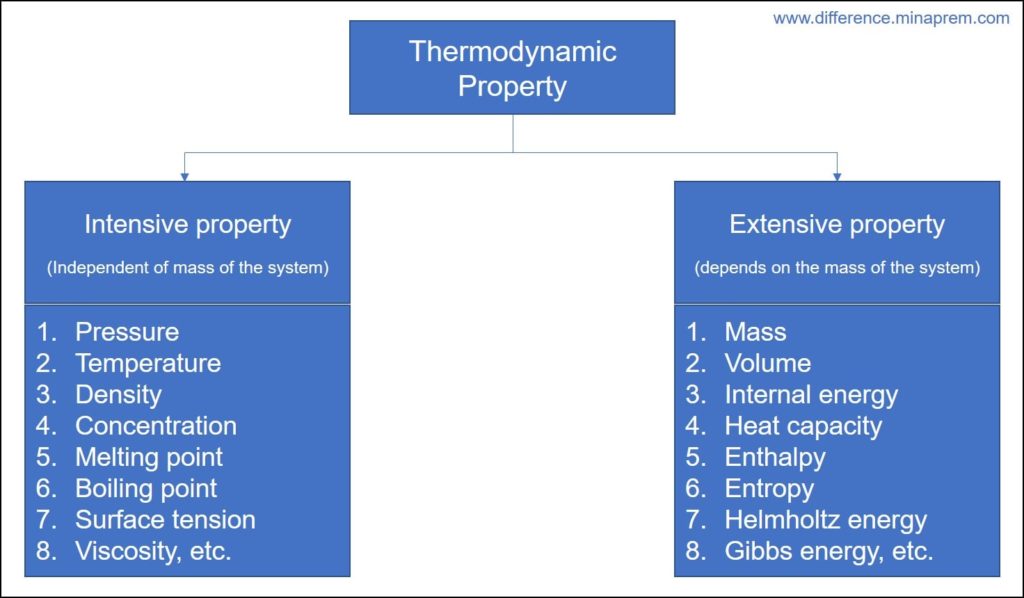Thermodynamic system refers to a definite quantity of matter or a specific region in space upon which attention is concentrated for the analysis of a problem. Each thermodynamic system has certain characteristics by which its conditions can be described. Such characteristics are known as thermodynamic properties. Properties are always macroscopic in nature (i.e. observable or sensible with simple instruments). Properties are also point functions (i.e. property has a definite value in every state). Some of these properties depends on the mass of the concerned system, while others are independent of mass. Based on the dependency of a particular property on the mass of the system, thermodynamic properties can be classified into two groups, as enlisted below.
- Intensive property
- Extensive property

What is intensive property?
All such thermodynamic properties that are independent of the mass of the concerned system are called intensive properties. Value of an intensive property will continue to remain unaltered even if the mass of the system changes.
Examples of intensive property: Pressure, Temperature, Density, Concentration, Melting point, Boiling point, Surface tension, Viscosity, etc.
What is extensive property?
All such thermodynamic properties that depend of the mass of the concerned system are called extensive properties. If the mass of the system changes, then the value of an extensive property will also change.
Examples of extensive property: Mass, Volume, Internal energy, Heat capacity, Enthalpy, Entropy, Gibbs energy, Helmholtz energy, etc.
Concept of specific extensive properties
By definition, extensive properties depend on mass of the system. So if an extensive property is defined per mass basis, then it becomes independent of mass. Such an extensive property, when defined per mass basis, is termed as specific extensive property. These properties become similar to intensive properties. Thus, specific extensive properties are basically intensive properties.
For example, enthalpy of a thermodynamic system is one extensive property as the more is the mass of the concerned matter, the higher will be the enthalpy of the system. However, specific enthalpy becomes independent of mass as it is defined as the enthalpy of the system per unit mass. So, even though the enthalpy is one extensive property, the specific enthalpy is one intensive property. Similarly, specific volume, specific internal energy, specific entropy, etc. all are intensive properties.